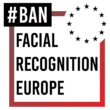A big success for Homo Digitalis: The Hellenic DPA fines CLEARVIEW AI with €20 million
On July 13 2022, following a complaint filed by Homo Digitalis in May 2021 representing our member and data subject Marina Zacharopoulou, the Hellenic Data Protection Authority (HDPA) issued Decision 35/2022 imposing a fine of 20 million euros on Clearview AI for its intrusive practices. By the same Decision, the DPA prohibits that company from collecting and processing the personal data of data subjects located in Greece using facial recognition methods and requires it to delete immediately any data it has already collected.
Specifically, in May 2021, an alliance of civil society organizations consisting of Homo Digitalis and the organisations Privacy International, Hermes Center, and noyb filed complaints before the competent authorities in Greece, the United Kingdom, Italy, Austria, France and the United Kingdom against Clearview AI for its mass surveillance practices through facial recognition.
Earlier this year, the Italian Data Protection Authority had decided to fine the company €20 million, while the UK’s equivalent authority had decided to fine it £7.5 million.
The €20 million fine imposed by the DPA today is another strong signal against intrusive business models of companies that seek to make money through the illegal processing of personal data. At the same time, it sends a clear message to law enforcement authorities working with companies of this kind that such practices are illegal and grossly violate the rights of data subjects.
Clearview AI is an American company founded in 2017 that develops facial recognition software. It claims to have “the largest known database of more than three billion facial images” which it collects from social media platforms and other online sources. It is an automated tool that visits public websites and collects any images it detects that contain human faces. Along with these images, the automated collector also collects metadata that complements these images, such as the title of the website and its source link. The collected facial images are then matched against the facial recognition software created by Clearview AI in order to build the company’s database. Clearview AI sells access to this database to private companies and law enforcement agencies, such as police authorities, internationally.
The full text of Decision 35/2022 can be found here (only in EL).


















































































